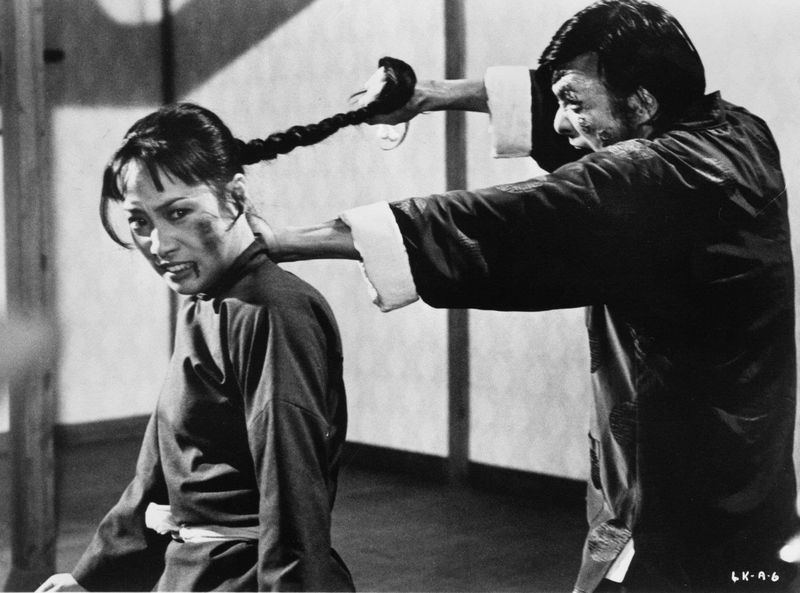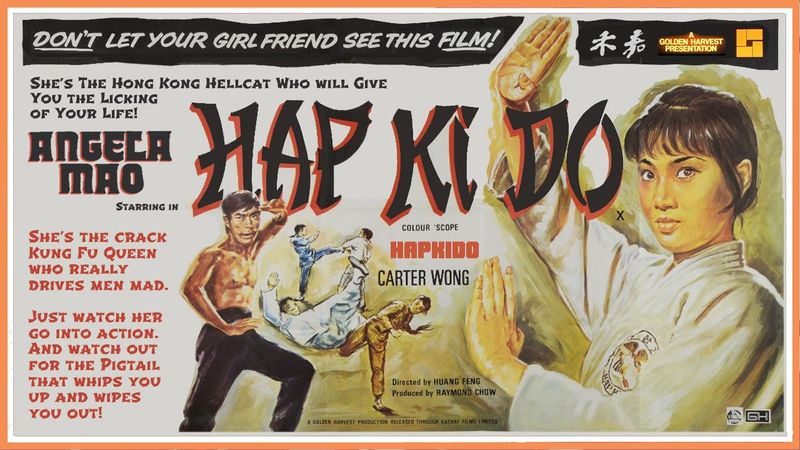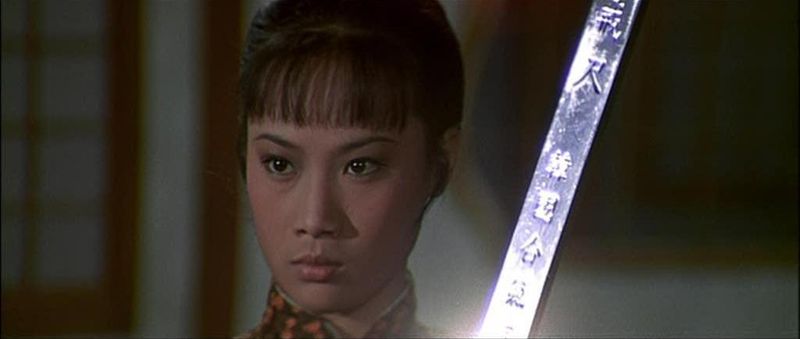Beginning this Friday, the Old School Kung Fu Fest at the Metrograph theater in Manhattan's Lower East Side will honor Mao's brief, but bountiful, film career. Organized under the thematic “Wonder Women of the Martial Arts,” the series opens with Hapkido, an established and revered classic, but contains a few deep cuts, too, like 1973's The Fate of Lee Khan, where Mao plays a crucial role. There are seven films total in the series, and Mao is in two. Others are headlined by Mao's female contemporaries, Cheng Pei Pei and Kara Hui Ying-Hung. This was an era of cinema, as the program’s liner notes explain, that featured “some of the fiercest female warriors to ever grace kung fu cinema, a wellspring of tough gals.”
Mao, who turns 67 next month, will introduce Friday night’s screening of Hapkido. The series is capitalizing on the renewed interest generated by the Times article nearly a year ago, and Metrograph expects the crowd to be populated with fans of her work, especially ones who’ve never seen this legend in the flesh.
Aliza Ma, Metrograph’s Director of Programming, was one of these devotees. She’d grown up watching Mao on film, enraptured by her onscreen displays of violent grace.
“I feel like kung fu is one of those rare genres of cinema where women were able to be upfront and center as these really aggressive presences,” Ma told me. “Ironically, for such a masculine genre, the kung fu film has always starred women from the beginning. That’s really interesting in an age when we’re celebrating female empowerment. I just thought it’d be great to see these films again.”
Mao wasn’t an avid cook growing up. In fact, she didn't really even get into cooking until circumstance demanded she do so. Mao fell into the restaurant industry out of financial necessity, just as she did with movies. She got married in 1974; in 1983, her husband moved to New York to begin a construction company. Mao and her son followed him to America, and she took up work in food service because it seemed like a financially stable vocation. The food she serves in her restaurants is mostly a reflection of what her husband and children liked during their first years in America.
“The restaurants were started primarily to support the family financially. Now that they've been around for awhile, it's really just to maintain that stability,” she told me. “I don't think my love of food really had much to do with it. Maybe my husband and kids and their love for food drove it more.”
When Mao opened Nan Bei Ho in 1997, she figured it was one of the first restaurants in the city (outside of Chinatown in Manhattan) that catered to consumer desire for Chinese home-style cooking. Her routine has remained static for the last several years: She works mostly on weekends, waking up at 7:30am to get to work at 9am, manning customer service and monitoring food quality. When I asked if running restaurants for the past two decades has changed her approach to cooking at all, she told me, rather plainly, well, no. She still cooks the same dishes the same ways.

Angela Mao in 'Hapkido' (1972). Photo by Metrograph
Ma, a longtime admirer of Mao, has been planning this series for the better part of a year. During the conceptual stages of programming, Ma stumbled upon the Times profile of Mao. She decided then and there that she’d have Mao as the anchor for the rest of the program. Ma had been utterly flummoxed by the fact that this woman, a “pioneer figure in international filmmaking,” just decided to quit one day and start a restaurant in Queens. She wanted to bring that history forward through the program.
“She really moved to New York to start a new life and raise her sons,” Ma said of Mao, awestruck not only by Mao’s jagged trajectory but also by what it seemed to be emblematic of. “This was such a part of the immigrant experience, too. So many people started working in restaurants and opening their own restaurants to survive.”
She fought tooth and nail to get Mao’s blessing to participate, but found Mao and her family somewhat evasive. So Ma and her team took matters into their own hands. They piled into a car bound for Nan Bei Ho. Not many patrons were in the restaurant; the party would later learn that they had just missed the Bruce Lee Fan Club, who came to eat lunch a bit earlier that day. Mao greeted the party at the door, which alarmed Ma. The woman Ma encountered that day was nothing like the spitfire she’d seen on screen. Mao, in her new avatar, was diffident and soft-spoken, at odds with the outsize persona she projected on celluloid.
Mao seated the party at their table. Ma remembers what she ate that day: a plate of stinky tofu; xiao long bao; and Taiwanese stewed beef noodles with cilantro. The food that day was, by Ma’s estimation, "perfect. A very good afternoon meal.” Mao’s grandchildren had been milling about the restaurant while she sat at a table nearby, sifting through chives, inspecting her produce, folding and creasing dumplings by hand.






 Reply With Quote
Reply With Quote



